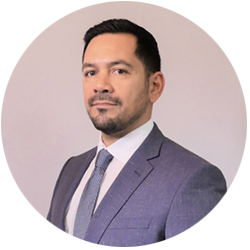DUI checkpoints, also known as sobriety checkpoints, are locations where law enforcement officers stop vehicles to check for signs of impaired driving. In Florida, these checkpoints are part of the effort to keep the roads safe and reduce the number of accidents caused by drivers under the influence of alcohol or drugs. Understanding how DUI checkpoints work and what your rights and responsibilities are can help you feel more prepared if you encounter one.
When you are driving through Florida, you may come across DUI checkpoints, especially during holidays or weekends when there is often an increase in alcohol consumption. These checkpoints are set up in areas where law enforcement believes there is a higher likelihood of drunk driving. The police stop drivers at random or at regular intervals, depending on how the checkpoint is organized. They may ask drivers simple questions and observe whether there are any signs of intoxication such as the smell of alcohol, slurred speech, or glassy eyes. If they suspect that a driver is impaired, they may ask the person to step out of the vehicle for further testing. At, Victory Law Firm P.A. , we are here to guide you through the legal process and help you navigate the complexities of your case.
The Legality of DUI Checkpoints in Florida
In the state of Florida, DUI checkpoints are legal, but they must follow certain rules and guidelines to protect the rights of drivers. According to both federal and state laws, law enforcement agencies are allowed to set up these checkpoints, but they must ensure that they do not violate a person’s Fourth Amendment rights, which protect against unreasonable searches and seizures. To be legal, a DUI checkpoint must be conducted in a fair and consistent manner, meaning that the police cannot stop drivers randomly or without reason. They must have a predetermined method for stopping vehicles, such as stopping every third car or every car that passes by.
Law enforcement must also publicize the existence of DUI checkpoints in advance, though they are not required to reveal the exact locations. This helps ensure that drivers are aware of the checkpoints and can prepare accordingly. The goal of these rules is to strike a balance between keeping the roads safe and protecting the constitutional rights of individuals.
What to Expect at a DUI Checkpoint
When you approach a DUI checkpoint in Florida, there are several things you should know to avoid confusion and make the process go as smoothly as possible. As you approach the checkpoint, you will likely see signs or flashing lights indicating the presence of law enforcement. Police officers will then direct you to stop your vehicle at the checkpoint.
Once you stop your car, an officer will likely ask you for your driver’s license, registration, and proof of insurance. During this interaction, the officer may ask you questions about where you are coming from, where you are going, and whether you have consumed any alcohol. It is important to remain calm and cooperative while answering these questions.
However, it is equally important to remember that you have the right to remain silent if you choose. You are not required to answer any questions beyond providing basic identification information. If the officer suspects that you may be under the influence, they may ask you to undergo a field sobriety test or a breathalyzer test. While you can refuse these tests, doing so may have consequences, such as an automatic suspension of your driver’s license.
Your Rights at a DUI Checkpoint
It is important to understand your rights when you are stopped at a DUI checkpoint. First and foremost, you have the right to remain silent. You do not have to answer any questions that may incriminate you. You can politely tell the officer that you choose not to answer any questions beyond providing your identification. It is important to be respectful when invoking your rights, as arguing with the police can escalate the situation unnecessarily.
Choosing a Car Accident Attorney Personal Injury Case ValueRelated Videos
You also have the right to refuse a search of your vehicle unless the police have probable cause. If the officer asks for your permission to search your car, you have the right to say no. However, if the officer has a reasonable suspicion that you are breaking the law or if they see something illegal in plain view, they may still search your vehicle without your consent.
If you are asked to take a field sobriety test or a breathalyzer test, you have the right to refuse. However, it is important to understand the consequences of refusing these tests. Under Florida’s “implied consent” law, if you refuse to take a breathalyzer test after being lawfully arrested for suspicion of DUI, your driver’s license can be automatically suspended for up to one year for a first offense and up to 18 months for subsequent refusals.
Responsibilities at a DUI Checkpoint
While you have certain rights at a DUI checkpoint, you also have responsibilities as a driver. It is your responsibility to stop your vehicle when directed to do so by law enforcement. Failing to stop at a checkpoint can result in serious consequences, including fines and criminal charges.
When you are stopped, you must provide your driver’s license, registration, and proof of insurance when asked. These are basic legal requirements for all drivers on the road. If you do not have these documents with you, you could face additional penalties, even if you are not charged with driving under the influence.
Serious Results
It is also your responsibility to remain calm and cooperative throughout the checkpoint process. While you are not required to answer questions or consent to a search, being polite and respectful can help make the interaction go more smoothly. Acting in a confrontational or hostile manner may only make the situation worse.
If you are asked to undergo a field sobriety test or a breathalyzer test, you must decide whether to comply or refuse. As mentioned earlier, refusing these tests can lead to the suspension of your driver’s license, so it is important to weigh your options carefully. Keep in mind that law enforcement officers are trained to detect signs of impairment, so even if you refuse a test, they may still arrest you if they believe you are under the influence.
Consequences of Failing a DUI Checkpoint
If you fail a DUI checkpoint by either showing signs of intoxication or by failing a field sobriety test or breathalyzer test, you may be arrested and charged with driving under the influence. In Florida, a DUI conviction can have serious consequences, including fines, jail time, and the suspension of your driver’s license. For a first-time offense, the penalties may include up to six months in jail, a fine of up to $1,000, and a driver’s license suspension of up to one year. Repeat offenses can result in even harsher penalties.
In addition to criminal penalties, a DUI conviction can have other long-lasting effects on your life. It can increase your car insurance rates, make it more difficult to find employment, and damage your personal reputation. This is why it is so important to understand your rights and responsibilities at DUI checkpoints and to avoid driving under the influence in the first place.
What to Do if You Are Arrested at a DUI Checkpoint
If you are arrested at a DUI checkpoint, it is important to remain calm and remember your rights. You have the right to remain silent and the right to an attorney. You should exercise both of these rights as soon as possible. Do not provide any additional information to the police without first speaking to a lawyer.
After your arrest, you will likely be taken to a local jail or police station, where you will be booked and may have to post bail to be released. Once you are released, it is important to contact a lawyer immediately to discuss your case and begin building your defense. A lawyer can help you understand the charges against you, explore your legal options, and represent you in court.
Encountering a DUI checkpoint can be a stressful experience, but knowing your rights and responsibilities can help you navigate the situation more confidently. Remember that while law enforcement has the right to stop drivers at DUI checkpoints, you also have rights that must be respected. If you are ever arrested or charged with a DUI in Florida, it is crucial to have a legal professional by your side to protect your rights and help you achieve the best possible outcome.
At Victory Law Firm P.A., our team is dedicated to defending individuals facing DUI charges in Florida. We understand how overwhelming this process can be, and we are here to guide you every step of the way. Contact us today for a consultation and let us help you fight for your rights.



